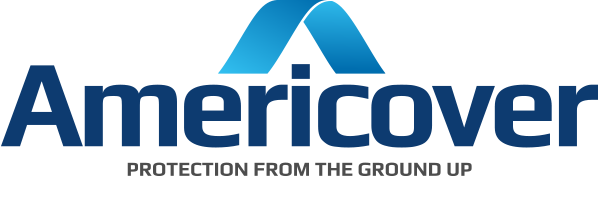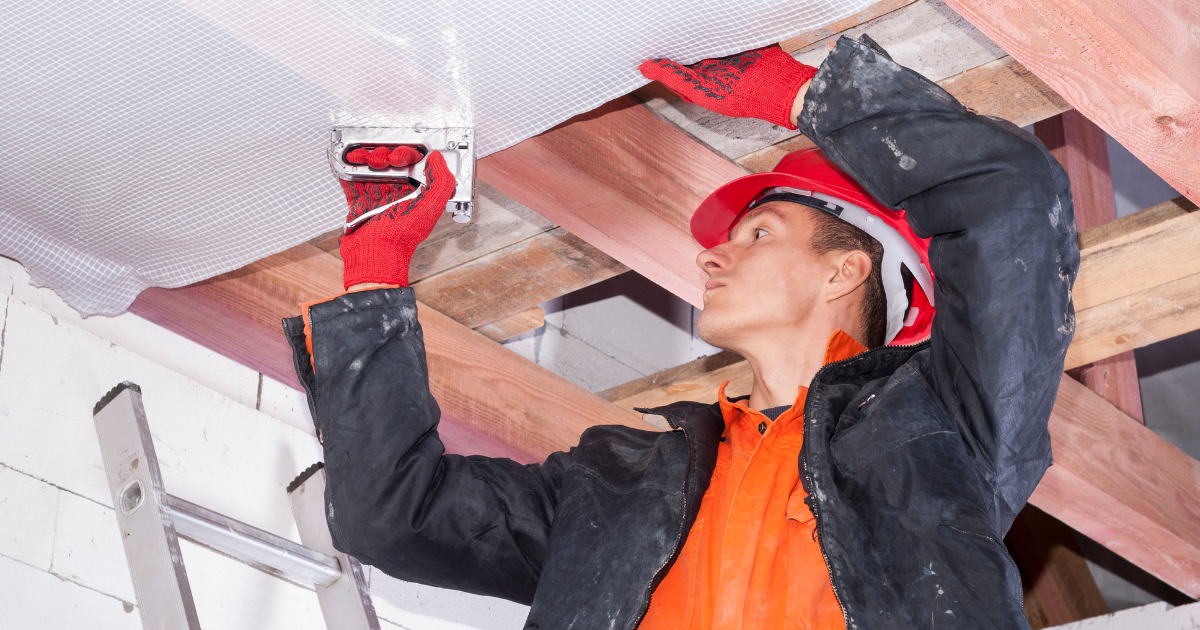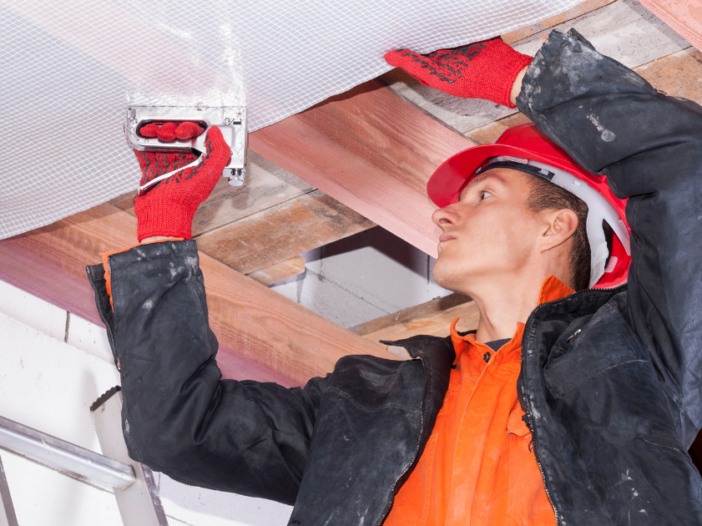
You would think that insulation and vapor barrier plastic go hand in hand, and in most cases it does, but in some cases combining the two together can create a moisture problem. However, leaving insulation exposed is never a good idea. It is not only a health hazard but it’s also a fire hazard, especially in the ceiling of a warehouse, basement, or commercial building. Covering the insulation with the right vapor barrier creates a safer environment for those working or inhabiting the building.
Daniel Mergens, Customer Success Manager at Americover, says “Contractors often come to us for expert advice on the best solutions used to cover ceiling insulation. We suggest that you consider your building safety codes before choosing a cover.” Shop our collection of insulation covers here.
Contact our vapor barrier experts at call us at 760-388-6294 and via direct chat.
What is the Difference Between Vapor Barrier Plastic Vs. Insulation?
Insulation controls the flow of heat from in and out of the building envelope. Ideally, insulation will keep heat inside the building in the winter and keep it out in the summer, saving energy and regulating indoor temperatures.
A vapor barrier, on the other hand, prevents moisture from penetrating the building walls. The plastic sheeting acts as a barrier against condensation, ensuring that the drywall of the house remain dry. Moisture can cause rot of the building structure and can contaminate the air. A vapor barrier helps regulate the moisture inside the home.
You should always install a vapor barrier to protect exposed ceiling insulation even if it’s temporary. Consult with a building or safety expert to confirm where else in the structure a vapor barrier may be required. In mixed climates or hot, humid climates, you almost always need some form of vapor retarder in your crawl space, however, some forms of insulation also act as a vapor barrier, such as foam spray insulation at 1 to 1 ½ inches. Certain rolled insulations are often designed to prevent moisture migration as well.
Insulation blankets will typically be much thicker than vapor barriers. Insulation blankets are typically made of fiberglass, polyester, wool, polyurethane, or cotton batting. Vapor barriers are typically made of polyethylene plastic and start at a minimum of 6 mils thick.
Should I Put Vapor Barrier Plastic Over Insulation Before Drywall?
Yes, covering your insulation with a vapor barrier plastic before installing drywall is crucial. It prevents moisture buildup that can lead to mold, rot, and even structural damage. A polyethylene vapor barrier also adds a layer of fire protection, making your home safer. Consult your local building codes to ensure you choose the right vapor barrier for your specific needs.
What are the Best Vapor Barriers to Use with Insulation?
The best insulation vapor barriers are made of polyethylene plastic and are reinforced to stand up against wear and tear. For extra protection, choose an insulation cover with mold and fire protection. Whether you are covering insulation in ceiling, walls, attic, or crawl space the team at Americover, is here to help you find the product you need for your application. We’ve built our reputation on being a one-stop shop for contractors and builders to find a wide range of specialty plastic sheeting products like vapor barriers.
Here are just a few insulation covers from our selection:
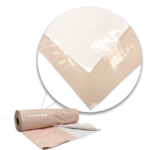 Pro Crawl Anti-Mold Vapor Barrier with MPT™ meets ASTM E1745 and ASTM G21 standards, giving it a low permeability to vapor and non-nutritive to fungal growth. This plastic sheeting’s multilayer design makes it the ideal choice for crawl space encapsulation.
Pro Crawl Anti-Mold Vapor Barrier with MPT™ meets ASTM E1745 and ASTM G21 standards, giving it a low permeability to vapor and non-nutritive to fungal growth. This plastic sheeting’s multilayer design makes it the ideal choice for crawl space encapsulation.
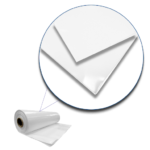 Pro Crawl Barrier is a 10 mil Class 1 Vapor Barrier with a high gloss white finish offering low permeability and excellent tensile strength to protect the building fabric from moisture vapor damage.
Pro Crawl Barrier is a 10 mil Class 1 Vapor Barrier with a high gloss white finish offering low permeability and excellent tensile strength to protect the building fabric from moisture vapor damage.
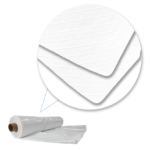 6 mil White Dura-Skrim® Reinforced Plastic Sheeting is a reinforced plastic sheeting is a heavy-dut film ideal for use in both indoor and outdoor applications in lconstruction and agricultural projects.
6 mil White Dura-Skrim® Reinforced Plastic Sheeting is a reinforced plastic sheeting is a heavy-dut film ideal for use in both indoor and outdoor applications in lconstruction and agricultural projects.
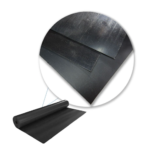 The Americover Root Barrier is an a high-density polyethylene (HDPE) plastic sheeting designs with a waterproof seal to protect the soil from moisture loss and redirect tree roots to prevent costly root damage to nearby structures.
The Americover Root Barrier is an a high-density polyethylene (HDPE) plastic sheeting designs with a waterproof seal to protect the soil from moisture loss and redirect tree roots to prevent costly root damage to nearby structures.
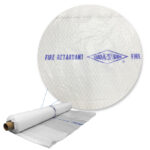 Dura Skrim® Fire Retardant Reinforced Plastic Sheeting is a puncture resistant film reinforced with a layer of polyester scrim to prevent tearing and ideal for construction projects that require flame retardant materials to meet building codes.
Dura Skrim® Fire Retardant Reinforced Plastic Sheeting is a puncture resistant film reinforced with a layer of polyester scrim to prevent tearing and ideal for construction projects that require flame retardant materials to meet building codes.
See Also: Vapor Barrier 101: What Not To Do
Trusted by Builders, Growers, and Distributors
Americover is the smart source for plastic and polyethylene sheeting. Trusted by contractors and distributors across the construction and agriculture industries, our American-made products combine reliability with quality and innovation.
As an Americover customer, you will receive the personalized support of a dedicated account manager to simplify the ordering process and ensure the best solution for every one of your projects. Our friendly, knowledgeable staff is here to answer your questions and fulfill orders Monday-Friday from 7 a.m. to 4:30 p.m. Pacific Standard Time. If you would like to speak with a representative, call us at 760-388-6294 or visit the contact us page on our website and fill out a form.
